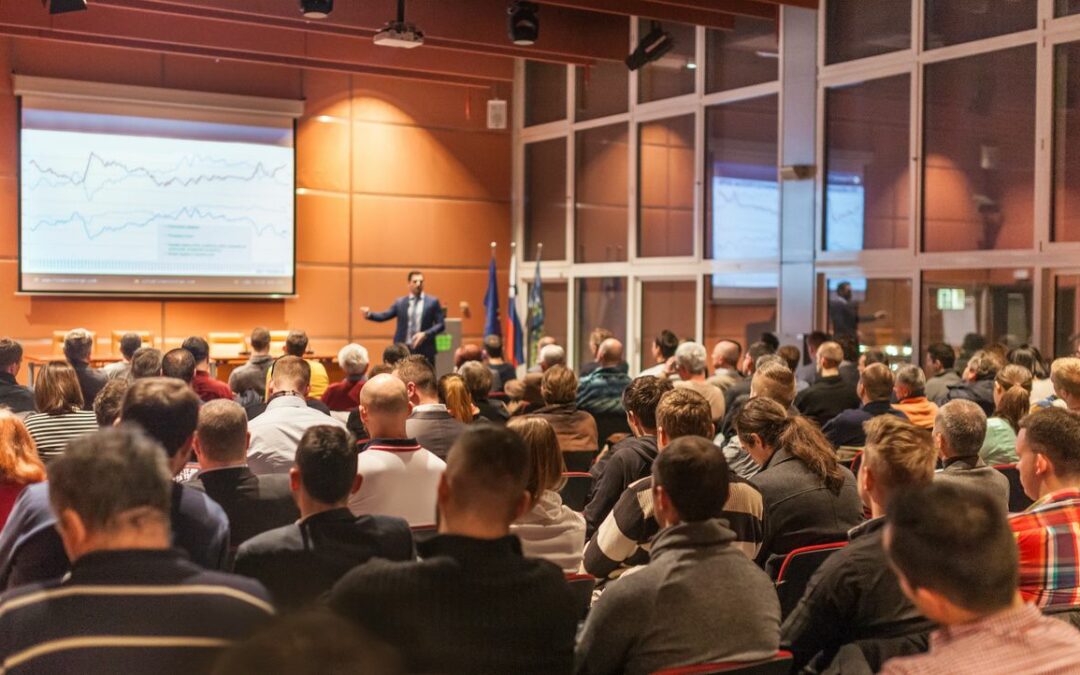Does Your Event Strategy Deliver?
Have you ever been asked by your CEO, CMO, or CFO why you spend so much on events? Do you know how to demonstrate the value of this spend? It’s not an easy question to answer. Unfortunately, without the ability to justify event, trade show, and meeting costs, your budget will be one of the first to be reviewed and possibly reduced.
According to a 2018 Bizzabo survey, 41% of marketers believe events are the single-most effective marketing channel – up 32% over 2017. Additionally, 84% of leadership believe in-person events are a critical component of their companies’ success. Yet according to a CMO Council survey, only 34% measure event ROI based on their objectives. These stats tell us that event planners need to work harder to justify their event spends.
There Is a Solution
Developing an event strategy is often a missed step and requires significant preemptive – but worthwhile – planning. It’s important to create not only an overarching strategy, but also specific goals and targets for each event, whether the event is a trade show, conference, customer program, or meeting. If you haven’t defined objectives, you can’t adequately measure what you want to achieve.
Let’s be realistic. Events are a marketing tactic used to drive the C-suite’s agenda: high-level goals focused on revenue growth, innovation, sustainability, process improvement, brand management, and employee engagement. Aligning events with the CEO, CMO, and CFO business goals is a critical step in justifying the spend.
Multiple Audiences – One Size Does Not Fit All
When creating objectives, understanding your audience is another critical step. It’s not just sales’ relationship with the customer. Think about who else needs to be engaged. In most cases it’s one size does not fit all, and a multiple-touchpoint approach is needed. For B2B, there could be multiple targets with varying personas that event marketers need to address:
- Customer – usually one person with a sales relationship
- User – person or persons who use a given product (may differ from the customer)
- CIO – bandwidth concerns
- Procurement – negotiates the deal
- Senior leadership – relationship building and looking to future products
- Industry analysts – want information about new products, company’s future
Some events may only focus on some of these targets, but what’s important is to understand who that target audience is and how your event, marketing, and promotions address their needs and their specific personas. How does your email marketing and social media campaigns address each of these audiences? Do you have committee members who can ensure that marketing and promotions reach the right audience? Have you set targets for each audience?
Having multiple touchpoints is why it is also important to make sure the right internal stakeholders participate on your event committee and cascade information to their teams. Who are those people impacted by the program? It’s not just logistics, creative, social media, communications, demand generation, sales and marketing; it’s also finance, IR, accounting, procurement, and senior leadership.
Aligning the Event Strategy with Marketing and Sales Goals
You Can’t Measure What You Don’t Define
Everyone has heard about the need to produce SMART objectives (Specific, Measurable, Achievable, Realistic, and Timely) that provide the framework for measurement. You can’t measure something ambiguous merely expressed as “increase revenue”; why not set the objective to “increase revenue 5% with our medical office space customers within 3 months of event completion”? That you can measure.
In order to adequately measure the effectiveness of your events, your strategy must identify event goals and have a clear understanding of what success looks like. It doesn’t matter the event type. What matters is whether the desired outcome happened 30, 60, or 90 days after an event. Did sales follow up on leads? Are the learning modules being effectively used? Are you seeing an impact from the event? These measurements stem from knowing what you want to measure and what the desired outcome should be. Measure what matters to justify your event spend.
With 81% of marketers believing that in the next few years events will become increasingly important to their organizations’ success (Bizzabo, 2018), we better start measuring to ensure events meet business objectives.
Define a Successful Event
Grow Your Events collaborates with event teams to develop strategies that support tangible, ongoing measurement and deliver to your company’s bottom line. We measure what matters, to grow your events and have the greatest impact on your business and justify your event spend. We analyze stats to create dashboards that identify areas of success or those that need attention. Click here to learn how our collaboration can improve your strategic direction and deliver better ROI.

